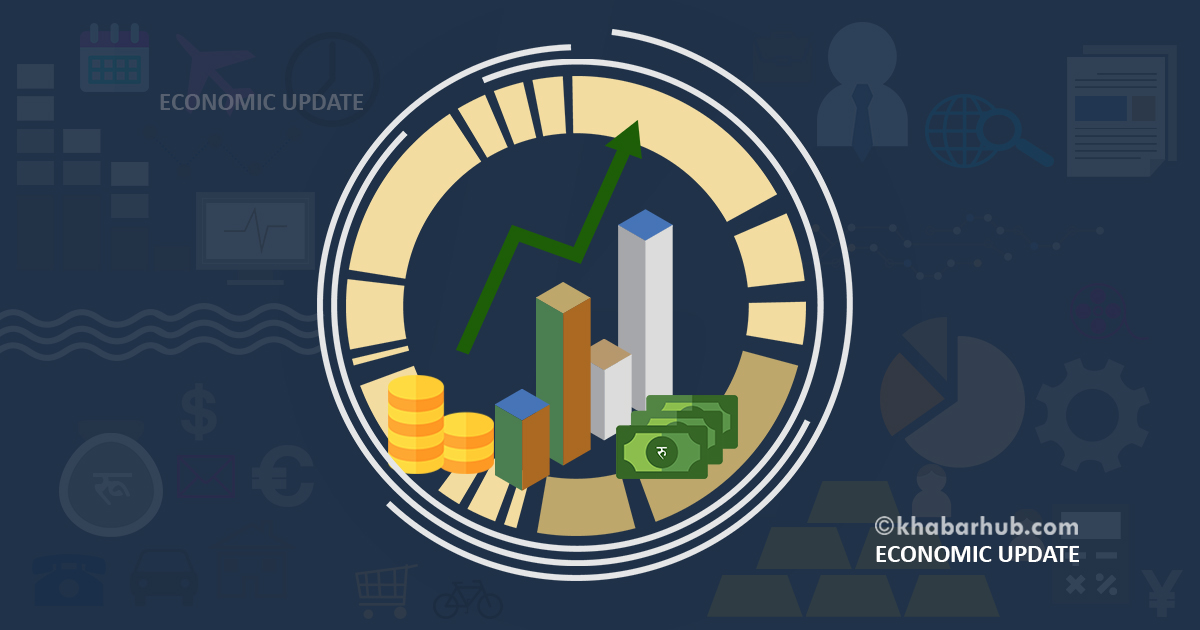KATHMANDU: Economic Digest offers a concise yet comprehensive overview of significant business happenings in Nepal, presented in easily digestible summaries.
Budget puts citizens first: Finance Minister Pun
Finance Minister Barshaman Pun has placed a strong emphasis on citizens’ welfare in the budget for the fiscal year 2023/24.
Minister Pun stressed the intention to inspire optimism within both the populace and the business community. He outlined the government’s commitment to initiating a new wave of economic reforms tailored to align with the nation’s geographical realities.
On Wednesday, he claimed that the budget allocations align with national resources and borrowing limits, aiming for economic viability over revenue increase. Presented at Rs 18.6 trillion, the budget underscores the government’s commitment to citizen-centric policies, he claimed.
Minister Pun also underscored judicious adjustments in tax rates aimed at safeguarding domestic industries and bolstering the manufacturing sector. The budget prioritizes increasing domestic production, particularly in key sectors such as agriculture, energy, and information technology.
Finance Secretary Madhu Kumar Marasini assured that budgetary allocations are managed within the parameters and domestic borrowing limits set by the National Natural Resources and Fiscal Commission.
NRB Governor’s take on budget
Nepal Rastra Bank (NRB) Governor Maha Prasad Adhikari has confirmed that the budget adheres to guidelines established by the Resource Estimation Committee and suggested that the federal government can resort to internal borrowing if provincial and local levels fall short in raising funds.
It should be noted that Finance Minister Pun presented a budget of Rs 18.6 trillion for the fiscal year 2023/24 during the joint session of the federal parliament, underscoring the government’s dedication to prioritizing citizens’ welfare through substantial financial allocations.
Finance Minister Pun expresses satisfaction
Finance Minister Barshman Pun expressed his happiness that the private sector responded positively to the budget for the fiscal year 2024/025.
NEPSE falls by 23.81 points
The budget for the fiscal year 2024/025 did not bring enthusiasm to the stock market. Finance Minister Barshaman Pun presented a budget worth 18 trillion 60 billion 300 million rupees in the Federal Parliament on Tuesday but did not include any concrete measures to improve the stock market.
The budget failed to stimulate the stock market, resulting in a significant downturn.
Despite reaching a high of 2113.24 points the day before the budget announcement, the Nepal Stock Exchange (NEPSE) fell by 23.81 points to 2089.42 points the day after.
The market saw a broad decline, with 191 companies’ share prices dropping and only 56 increasing. The Sensitive, Float, and Sensitive Float Indices also saw declines, with the life insurance group suffering the most significant loss on Wednesday.
However, the production group experienced a notable rise, and shares of a few companies, including Unilever Nepal, surged by 10 percent, entering a positive circuit.
The effect was seen on the NEPSE on Wednesday. On Monday, the day before the budget speech, NEPSE reached its highest level of 2086.83 points. Even when the market closed on Monday, NEPSE remained around 2100 points, closing at 2113.24 points.
However, on the second day following the budget announcement, NEPSE decreased by 23.81 points.
On Wednesday, the NEPSE, which had increased by 20 points in the pre-open session, ultimately decreased by 1.12 percent to 2089.42 points.
Yesterday, 10.738 million shares worth Rs 4.57563 billion were bought and sold in 63,080 transactions.
On Wednesday, the share price of 56 companies increased while the share price of 191 companies decreased. The share price of no company remained stable.
The Sensitive Index fell by 4.82 points, the Float Index by 2.17 points, and the Sensitive Float Index by 2.36 points. Investors experienced significant losses, particularly in the life insurance group, which decreased by 134.64 points. Meanwhile, the production group saw the highest increase, rising by 170.01 points.
Gold price surges
The headline draws attention to a significant development: an increase of Rs 600 per tola in gold prices in Nepal. This rise is reported by the Nepal Gold and Silver Dealers’ Association, with fine gold now priced at Rs 138,200 per tola and standard gold at Rs 137,550 per tola.
A comparison with prices from the previous day reveals a noticeable escalation in both categories of gold, indicating market volatility.
The domestic market in Kathmandu witnessed a notable surge in gold prices, with an increase of Rs 600 per tola.
Comparatively, just on Monday, the price of fine gold was recorded at Rs 137,600 per tola, with standard gold at Rs 136,950 per tola. This significant rise highlights the volatility in the precious metals market.
Iron Rod Manufacturers Association frustrated
The Iron and Rod Manufacturers Association expressed concern that the industry would be shut down due to the government imposing a tax on scrap and sponge iron.
The Association warned that the budget provisions may force industry closures. Following Finance Minister Barshaman Pun’s budget, the Association held a press conference in Kathmandu, highlighting concerns about increased customs duty on raw materials.
This move is deemed detrimental to the melting plant sector, endangering over 3,100 jobs. The Association criticizes the shift in policy favoring raw material imports over domestic value addition, impacting industries with combined investments of Rs 36 billion and over 3,500 jobs.
Thursday’s forex
Nepal Rastra Bank (NRB) has fixed the exchange rate of foreign currency for May 30. According to NRB, the buying rate of one US dollar is Rs 133.06, and the selling rate is Rs 133.66.
Similarly, the buying rate of one Euro is Rs 144.24, and the selling rate is Rs 144.89. The buying rate of one British pound is Rs 169.58, and the selling rate is Rs 170.35.
According to Nepal Rastra Bank, the buying rate of one Qatari riyal is Rs 36.50, and the selling rate is Rs 36.67.
The spread between the buying and selling rates is a crucial indicator of the cost incurred by the consumer when converting currency.
It is the difference between what the bank pays for the currency and what it charges. A smaller spread typically indicates a more favorable exchange rate for consumers.
(Compiled and prepared by Srija Khanal)
Economic Digest is a daily morning economic digest, basically relatable summations of the most important business news, and happenings from Nepal into easy-to-understand summaries.









Comment